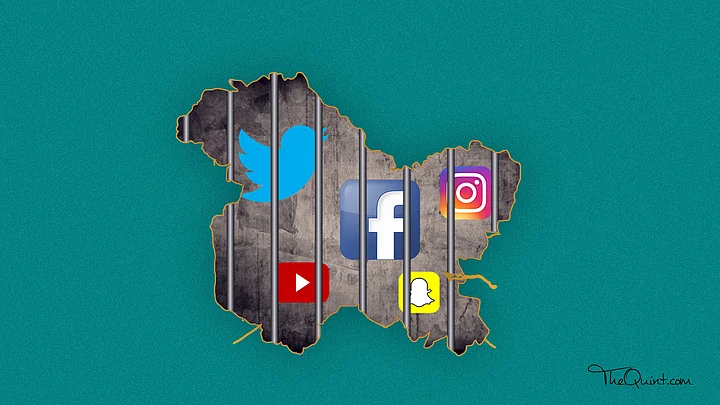India has had 21 instances of internet shutdowns in 2017, a legal service organisation, Software Freedom Law Centre’s (SFLC) research showed.
SFLC which has been tracking the number of internet shutdowns in India on their website internetshutdowns.in recorded at least 52 instances of shutdowns since 2016. The number is as high as 80, if accounted for since 2012.
The state which faced the highest number of shutdowns between 2012-17 is Jammu and Kashmir with a figure of 34 shutdowns. The Kashmir Valley which has been in a state of unrest sees frequent internet shutdowns.

According to Human Rights Watch (HRW), in May, David Kate, the United Nations special rapporteur on freedom of opinion and expression, and Michel Forst, the special rapporteur on human rights defenders, condemned the frequent restrictions in the Kashmir Valley, calling the act a “disproportionate impact on the fundamental rights of everyone in Kashmir”, after Indian authorities blocked mobile internet, and apps Twitter, Facebook, WhatsApp.
HRW asked Indian authorities to cease what is calls “arbitrary restrictions” on the country’s internet.
The South Asia director of HRW, Meenakshi Ganguly said:
Indian authorities’ concerns over the misuse of the internet and social media should not be the default option to prevent social unrest.
From 5 June to 8 June in 2017, the BJP-led Central government suspended mobile internet services in Nashik in Maharashtra and Madhya Pradesh during the farmers’ unrest, in Kashmir following clashes between people and the police and in Uttar Pradesh’s Saharanpur following the arrest of a Dalit leader.
Alarmed at the rising number of internet shutdowns under the current government, SFLC has asked for a petition to be signed in support of Internet being a fundamental right of a citizen.
Instances of Internet shutdowns in India are increasing at a worrisome pace. As the Internet is a key enabler of many fundamental rights, including freedom of speech and expression, such frequent disruptions have been a cause for concern. They threaten the democratic working of nations, and also point to the gradual normalisation of the mindset that permits such blanket restriction on Internet access.SFLC
(At The Quint, we question everything. Play an active role in shaping our journalism by becoming a member today.)
